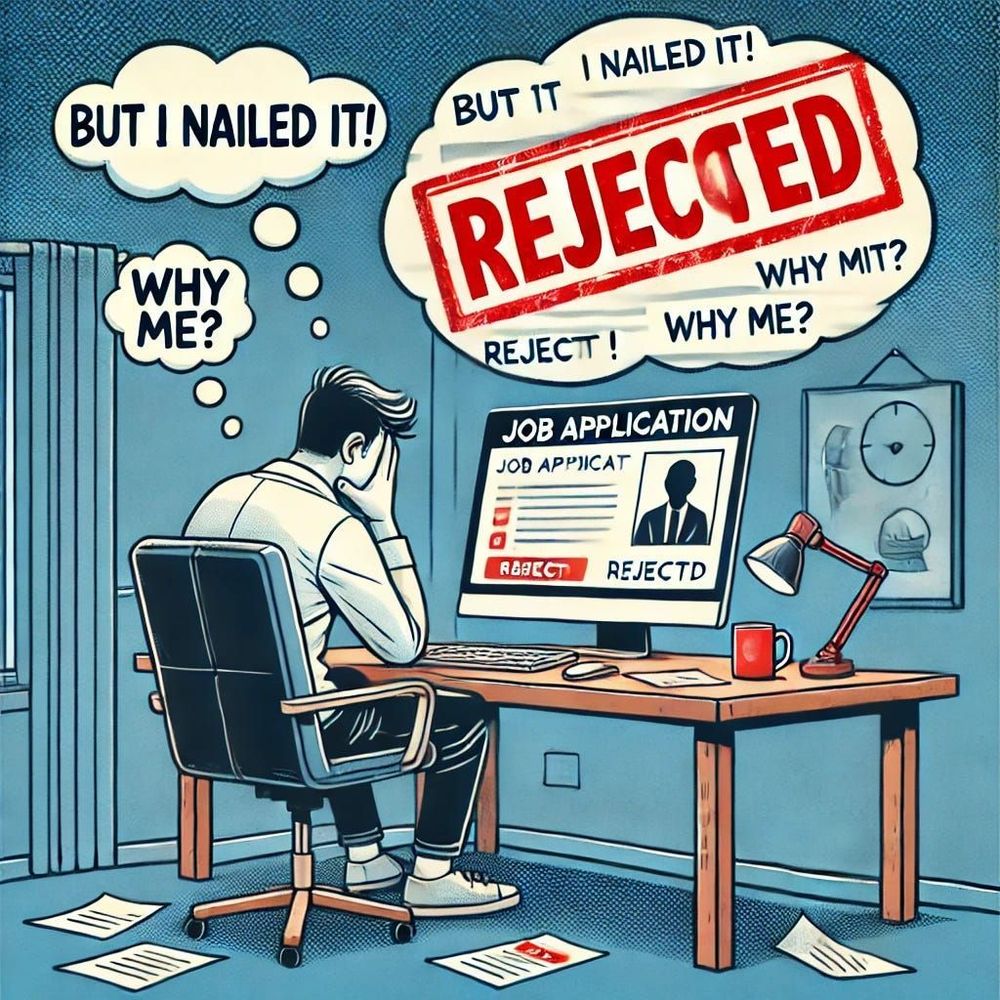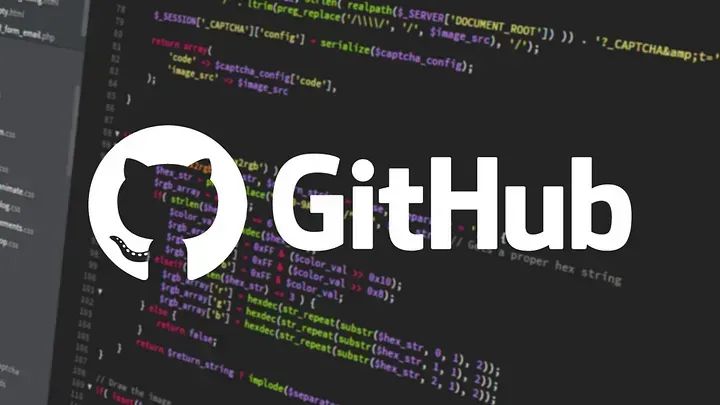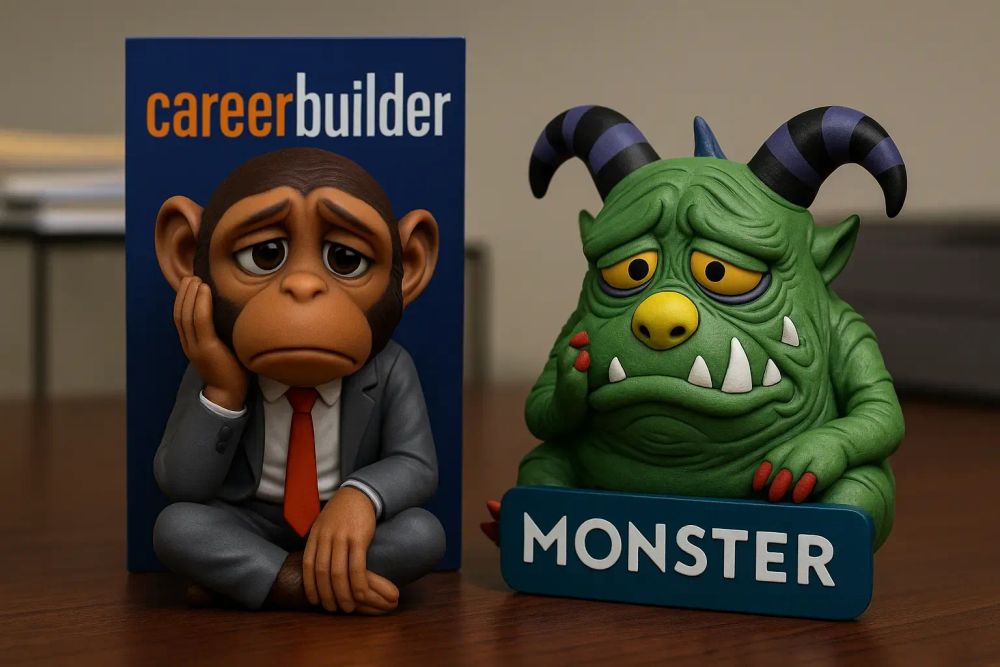A founder once told me:
“I kept giving them feedback. They kept delivering the same thing.”
They didn’t have a dev problem.
They had a context problem.
The best devs don’t just listen.
They translate.
That’s how you build momentum.
01.08.2025 12:02 — 👍 0 🔁 0 💬 0 📌 0
Hiring isn’t just about skill.
It’s about chemistry.
I’ve seen teams slow down after hiring one technically solid dev.
Wrong communication style.
Wrong energy.
Wrong instincts.
Bad culture fit doesn’t always look like drama.
It looks like drag.
31.07.2025 12:02 — 👍 0 🔁 0 💬 0 📌 0
Some devs understand scale. Others understand survival.
The first can design beautiful systems.
The second keeps you alive long enough to matter.
At seed stage, you don’t need an architect.
You need someone who knows what not to build.
30.07.2025 12:01 — 👍 0 🔁 0 💬 0 📌 0
“I just want to write clean code.”
Sounds harmless.
But if that’s their top priority in a startup, you're in trouble.
You don’t need perfectionists.
You need product thinkers who can ship clean enough.
29.07.2025 12:02 — 👍 0 🔁 0 💬 0 📌 0
You can’t coach urgency.
Either a dev feels the weight of the roadmap or they don’t.
The ones who thrive in startups don’t wait for clarity.
They move with it.
They close gaps.
They unblock themselves.
That’s not experience.
It’s mindset.
28.07.2025 12:01 — 👍 0 🔁 0 💬 0 📌 0
A founder told me they got 300 applicants for a Flutter role.
None made it past round one.
Not because the bar was too high.
Because most were good at applying, not building.
That’s why I don’t wait for inbound.
I find the ones already shipping.
25.07.2025 12:02 — 👍 0 🔁 0 💬 0 📌 0
Fast teams aren’t chaotic.
They’re consistent.
• Clear priorities
• Tight loops
• No dead weight
• No hand-holding
• No overthinking
Speed doesn’t come from pressure.
It comes from direction.
24.07.2025 12:01 — 👍 0 🔁 0 💬 0 📌 0
When a dev leads with “clean architecture,” I pause.
If they want the perfect setup before shipping a feature, I ask why.
Quality matters. But context matters more.
Perfect code won’t save you, f no one wants what you built.
23.07.2025 12:02 — 👍 0 🔁 0 💬 0 📌 0
Some devs ship fast.
Others ask the harder question first:
Should we even build this?
That second kind protects your roadmap, your team’s time, and your burn rate.
Startups don’t fail from bad code.
They fail from building the wrong thing.
22.07.2025 12:03 — 👍 0 🔁 0 💬 0 📌 0
What if your best mobile hire never applies?
Not because they’re unqualified, but because they’re not looking.
They’re already building, contributing, helping teams ship.
The best Flutter devs I’ve placed were already on my radar.
You just have to know where to look.
21.07.2025 12:03 — 👍 0 🔁 0 💬 0 📌 0
The best Flutter devs aren’t filling out job apps.
They’re shipping side projects at midnight.
Debugging with strangers in Discord.
Writing code that speaks louder than any resume.
You won’t find them in a stack.
You find them by following the work.
18.07.2025 12:03 — 👍 0 🔁 0 💬 0 📌 0
You don’t need a 10x dev.
You need someone who gets what you’re building.
Understands urgency.
Can run with a loose brief.
Makes smart tradeoffs under pressure.
That’s the kind of hire that moves the needle fast.
17.07.2025 12:03 — 👍 0 🔁 0 💬 0 📌 0
A founder told me:
“He looked great on paper. But everything was overbuilt.”
He defaulted to BLoC and Firebase before asking a single question.
It wasn’t about tools. It was about thinking.
The best devs don’t rely on patterns. They rely on judgment.
16.07.2025 12:02 — 👍 1 🔁 0 💬 0 📌 0
The best startup devs don’t just build, they choose.
What to ship now.
What to leave out.
Where to simplify.
What to ignore.
It’s not just speed.
It’s judgment.
Knowing what moves the product forward and what doesn’t.
15.07.2025 12:03 — 👍 0 🔁 0 💬 0 📌 0
Most startup interviews reward polish, not proof.
They screen for safe answers instead of smart tradeoffs.
If you want someone who can build under pressure, skip the quiz.
Give them a product call and watch how they think.
That’s the real signal.
14.07.2025 12:02 — 👍 1 🔁 0 💬 0 📌 0
Most devs aren’t underbuilding.
They’re overcomplicating.
Scaling before users.
Over-architecting simple flows.
Solving fake problems with real time.
Simple ships faster.
Simple scales later.
Simple wins.
11.07.2025 12:02 — 👍 2 🔁 0 💬 0 📌 0
Shipping fast looks exciting.
But great teams ship on repeat.
They don’t chase inspiration.
They don’t overthink specs.
They win by removing chaos.
You don’t need a faster team.
You need a more predictable one.
10.07.2025 12:02 — 👍 0 🔁 0 💬 0 📌 0
Six interview rounds.
Zero hires who could move fast.
The company didn’t learn who could ship.
They learned who could survive process.
Startups need less theatre, more proof of execution.
Want signal? Look at what they question, not just what they build.
09.07.2025 12:02 — 👍 0 🔁 0 💬 0 📌 0
The best engineers I know don’t ask “How do I build this?”
They ask “Why build this at all?”
AI writes code.
Product engineers kill bad ideas, ship faster, and care if users actually use it.
The market pays 10x for builders who think like owners.
08.07.2025 12:01 — 👍 0 🔁 0 💬 0 📌 0
A founder hired a “senior” dev.
Strong CV. Great interview.
3 weeks in, their lead was rewriting PRs and skipping lunch to keep up.
The code shipped. The team slowed.
The most expensive hire?
A mid-level dev you manage like an intern.
07.07.2025 12:01 — 👍 0 🔁 0 💬 0 📌 0

The best Flutter devs I placed this year didn’t send résumés.
They shipped proof.
→ GitHub
→ Live apps
→ Smart product calls
Résumés show history.
Startups need execution.
Still screening PDFs?
You’re missing the ones who move the needle.
04.07.2025 12:03 — 👍 0 🔁 0 💬 0 📌 0

The best Flutter devs I placed this year didn’t send résumés.
They shipped proof.
→ GitHub
→ Live apps
→ Smart product calls
Résumés show history.
Startups need execution.
Still screening PDFs?
You’re missing the ones who move the needle.
03.07.2025 12:02 — 👍 0 🔁 0 💬 0 📌 0

One Flutter role. 1,200 applicants.
1,080 were AI junk.
The result?
→ Wasted sprints
→ Burned morale
→ Investors asking questions
The best hires didn’t apply, they shipped.
If you’re still hiring from the pile, what’s it really costing you?
02.07.2025 12:02 — 👍 0 🔁 0 💬 0 📌 0

Monster died. LinkedIn won’t. But inbound hiring? Already dead.
2% of inbound apps lead to interviews.
Top talent doesn’t apply.
They ship in public.
They get referred.
Still relying on inbound?
You’re behind.
Where did your last great hire come from?
01.07.2025 12:02 — 👍 0 🔁 0 💬 0 📌 0

Monster and CareerBuilder just filed for bankruptcy.
Legacy doesn’t matter. Adaptation does.
What killed them?
→ Networks (LinkedIn)
→ Speed (Indeed)
→ Fit (Niche platforms)
The best hire I made last month came from a GitHub thread.
Where did yours come from?
30.06.2025 12:02 — 👍 0 🔁 0 💬 0 📌 0
A founder I worked with was burnt out.
3 no-shows. Inbox full of AI-written CVs.
One key feature slipping.
We rebuilt the funnel.
2 focused calls.
1 dev who’d already solved the same problem.
5 days later: offer signed.
Sprint unblocked.
What’s your time worth?
27.06.2025 12:02 — 👍 0 🔁 0 💬 0 📌 0
The dev wasn’t faster. Just sharper.
They rebuilt onboarding 3 times.
Each version fixed a wrong assumption.
The last one fixed retention.
Most teams chase speed.
The best chase outcomes.
Can your team slow down when it matters?
26.06.2025 12:03 — 👍 0 🔁 0 💬 0 📌 0
No big names. No spec. Still shipped in 10 days.
The founder almost passed.
No resume. Just a GitHub repo with a full onboarding flow - UI, auth, edge cases.
All solo.
They took the risk.
It worked.
Still screening for pedigree? You're missing your best hire.
25.06.2025 12:02 — 👍 0 🔁 0 💬 0 📌 0
Most teams wait to hire until it’s urgent.
That’s why they end up sifting through 100+ AI-written CVs.
A founder I work with filled a role 4 months early, because they’d stayed in touch.
One habit:
Quick check-ins. No pitch. No scramble.
24.06.2025 12:03 — 👍 0 🔁 0 💬 0 📌 0
They didn’t fire the dev because he was bad.
They fired him because he was local.
$18K/month, 6 weeks, no shipments.
Remote hire at 40% less shipped onboarding in 5 days.
The office created the illusion of progress.
Remote forced clarity.
23.06.2025 12:01 — 👍 0 🔁 0 💬 0 📌 0
Writing The Pragmatic Engineer (@pragmaticengineer.com), the #1 technology newsletter on Substack. Author of The Software Engineer's Guidebook (engguidebook.com). Formerly at Uber, Skype, Skyscanner. More at pragmaticengineer.com
Ex Google (on the Flutter team). Now, founder of @serverpod.dev, a next-generation, open-source server written in Dart for the Flutter community. 🚀 Check it out!
San Francisco Meetup Group for Flutter
https://shorturl.at/2iAPP
Flutter & Friends is a social conference, taking place in Stockholm on August 31st to September 2nd, 2025.
The first day is unlike any other conference, its focus is to get you to know people in the community by attending different fun social activities!
Flame is a game engine for Flutter. 🔥
https://flame-engine.org
The Official FlutterFlow Account. Build custom apps faster and easier
👉 https://www.flutterflow.io/
An approachable, portable, and productive language for high-quality apps on any platform. https://dart.dev
Google’s UI toolkit to build apps for mobile, web, & desktop from a single codebase. Official hashtag is #FlutterDev.
Vania is Dart backend framework
Documention
https://vdart.dev
the Postgres development platform
🌐 http://supabase.com
⭐️ http://github.com/supabase
🎥 http://youtube.com/supabase
💬 http://discord.supabase.com
Unlock the power of generative AI for your app and business. Firebase helps you build, run, & scale modern apps that users love.
Rive is a new way to design, build, and ship UI for apps, products, websites, and games.
https://rive.app
Building things solo, one keystroke at a time.
a Mobile developer I do native android and native iOS also Flutter and KMM for cross platforms.
I also share my knowledge on medium from time to time
On YouTube: https://www.youtube.com/@FreemanSoft
On LinkedIn: https://www.linkedin.com/in/1freeman/
☾₊˚.⋆✩ aka "The Cloud Witch" ✨💖🔮 ~
Senior Flutter & TypeScript Engineer,
consulting at @vgventures.bsky.social;
💖 A game dev at heart ~
CEO & Founder at @mekomi.dev;
💜💙 #Flutterista ~
🏳️⚧️🏳️🌈 she/they
- Building atprotodart.com things
- Collaborating with deck.blue
- Maintaining @apod.shinyakato.dev
- aka github.com/myConsciousness




